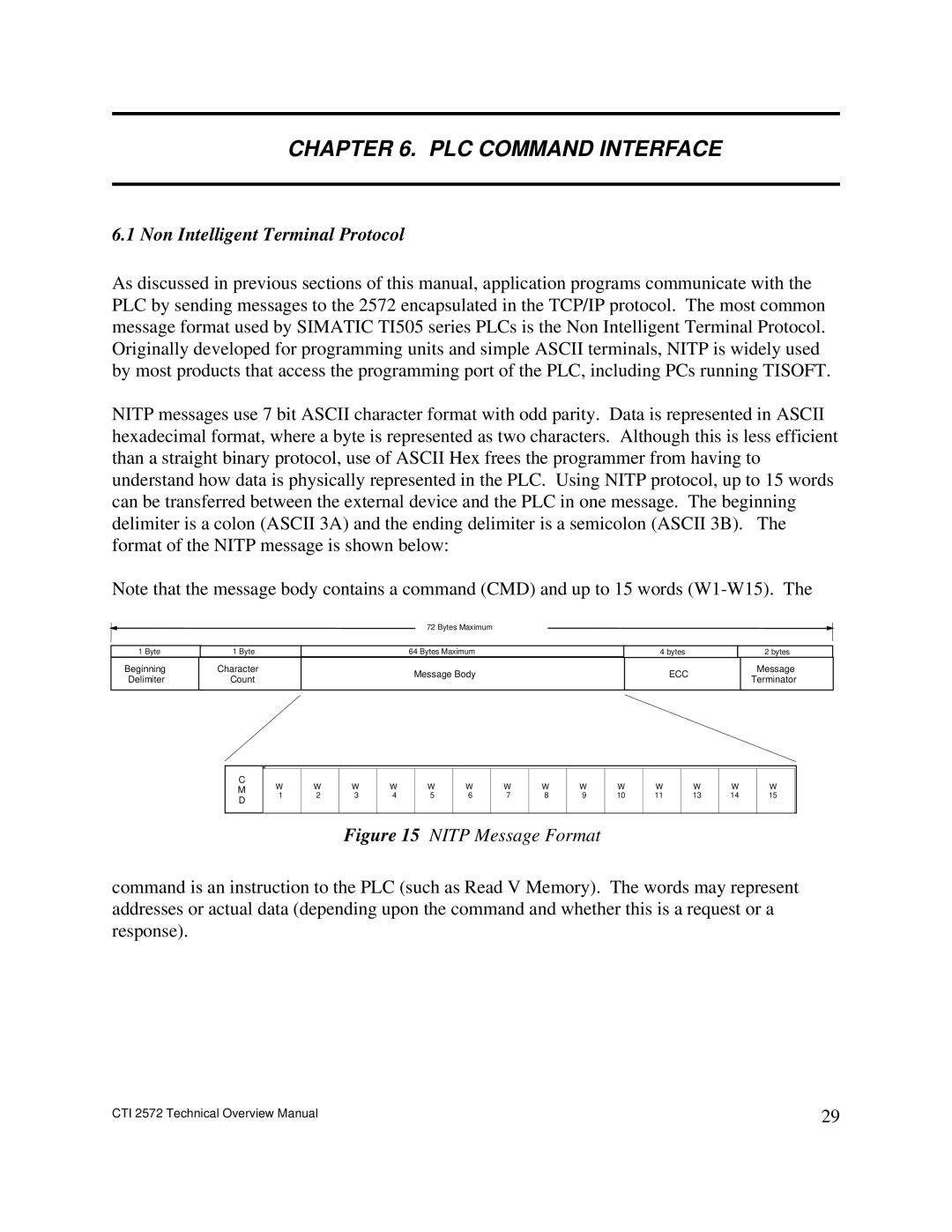
CHAPTER 6. PLC COMMAND INTERFACE
6.1 Non Intelligent Terminal Protocol
As discussed in previous sections of this manual, application programs communicate with the PLC by sending messages to the 2572 encapsulated in the TCP/IP protocol. The most common message format used by SIMATIC TI505 series PLCs is the Non Intelligent Terminal Protocol. Originally developed for programming units and simple ASCII terminals, NITP is widely used by most products that access the programming port of the PLC, including PCs running TISOFT.
NITP messages use 7 bit ASCII character format with odd parity. Data is represented in ASCII hexadecimal format, where a byte is represented as two characters. Although this is less efficient than a straight binary protocol, use of ASCII Hex frees the programmer from having to understand how data is physically represented in the PLC. Using NITP protocol, up to 15 words can be transferred between the external device and the PLC in one message. The beginning delimiter is a colon (ASCII 3A) and the ending delimiter is a semicolon (ASCII 3B). The format of the NITP message is shown below:
Note that the message body contains a command (CMD) and up to 15 words
1 Byte
Beginning Delimiter
1 Byte
Character Count
72 Bytes Maximum
64 Bytes Maximum | 4 bytes |
| 2 bytes | |
Message Body | ECC |
| Message | |
| Terminator | |||
|
|
|
| |
|
|
|
|
|
C |
|
|
|
|
|
|
|
|
|
|
|
|
|
| |
W | W | W | W | W | W | W | W | W | W | W | W | W | W | ||
M | |||||||||||||||
1 | 2 | 3 | 4 | 5 | 6 | 7 | 8 | 9 | 10 | 11 | 13 | 14 | 15 | ||
D | |||||||||||||||
|
|
|
|
|
|
|
|
|
|
|
|
|
| ||
|
|
|
|
|
|
|
|
|
|
|
|
|
|
|
Figure 15 NITP Message Format
command is an instruction to the PLC (such as Read V Memory). The words may represent addresses or actual data (depending upon the command and whether this is a request or a response).
CTI 2572 Technical Overview Manual | 29 |
